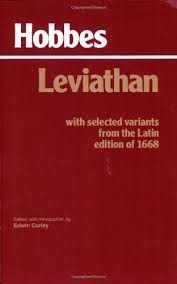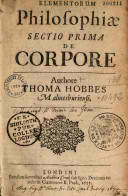Hackett, 1994 (Edwin Curley, ed.)
The Leviathan is Hobbes’s masterwork, published in 1651. It contains four parts: “Of Man,” “Of Commonwealth,” “Of a Christian Commonwealth,” and “Of the Kingdom of Darkness.” “Of Man” connects Hobbes’s understanding of… More







